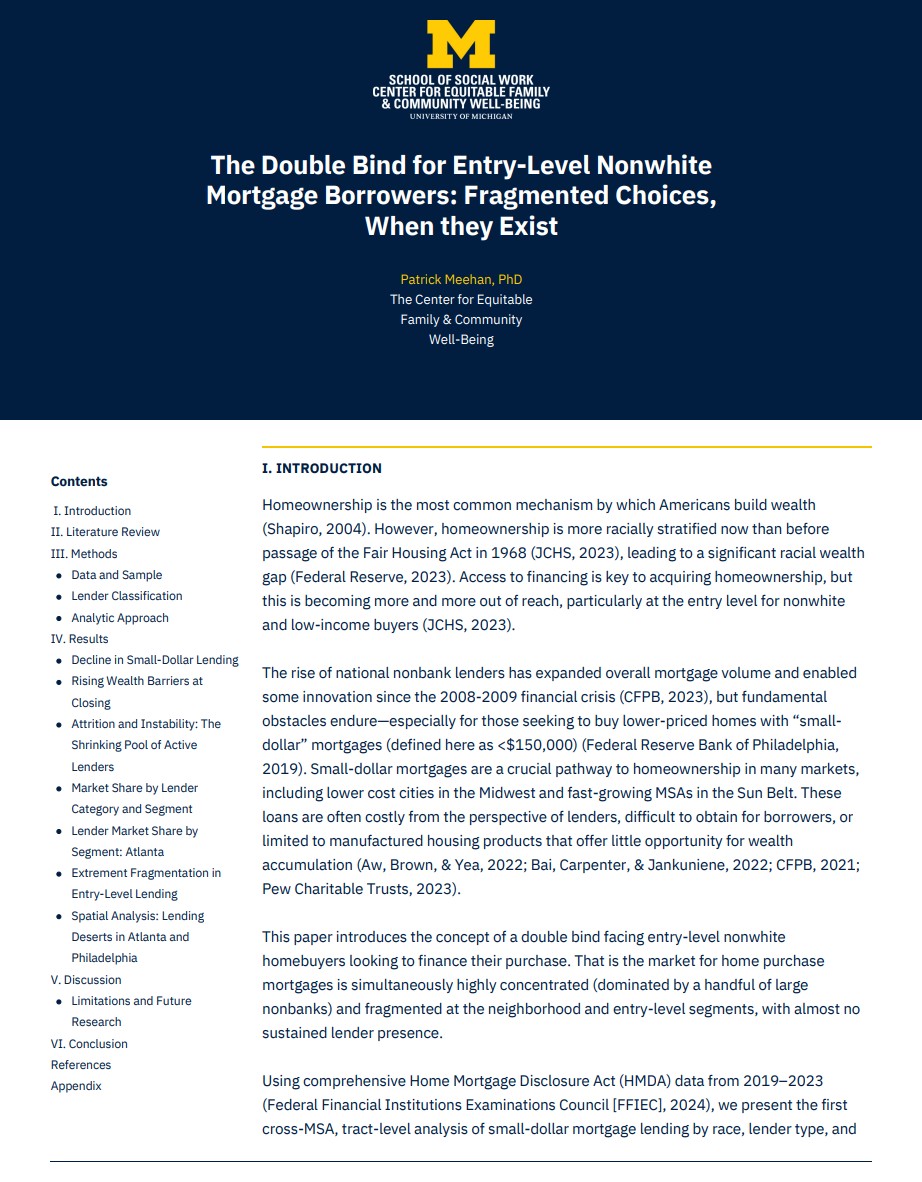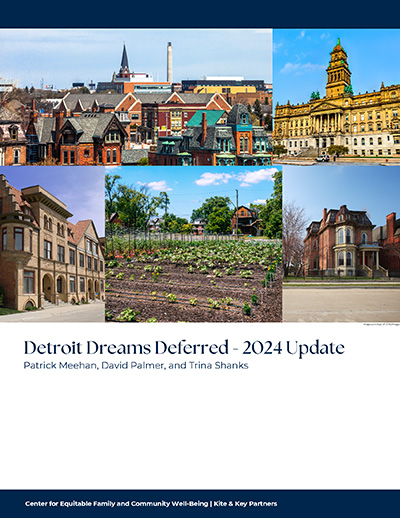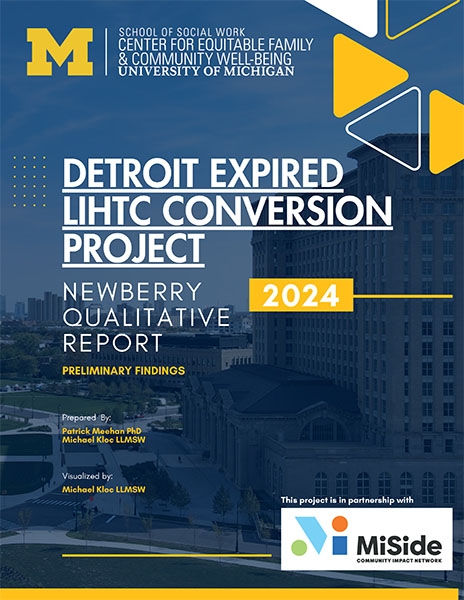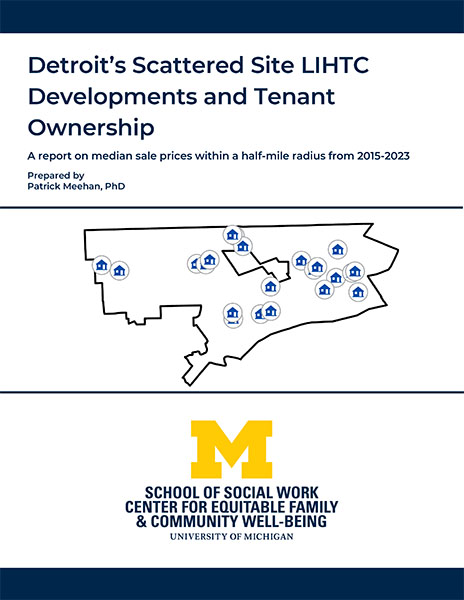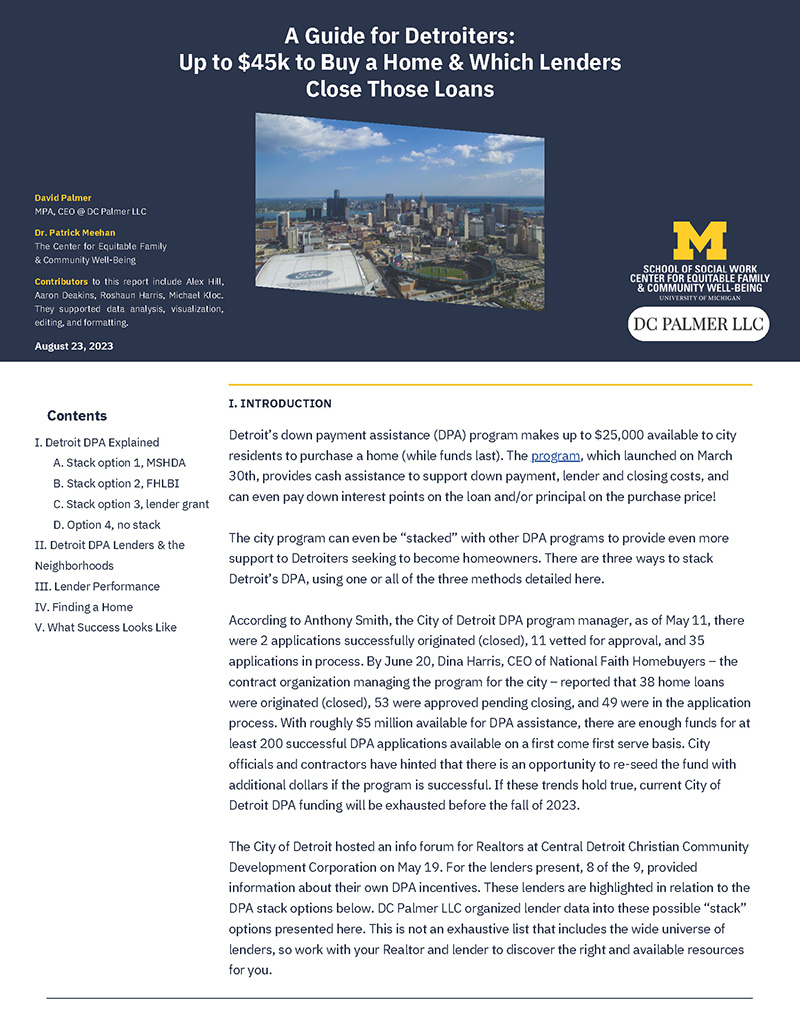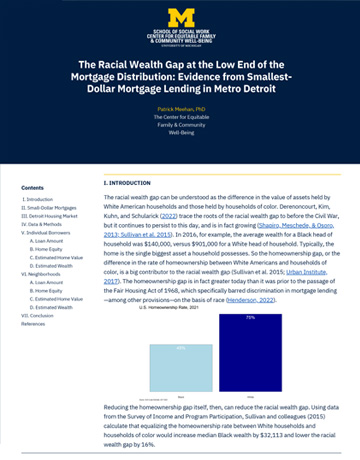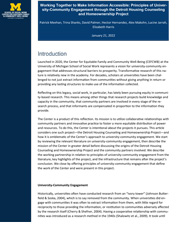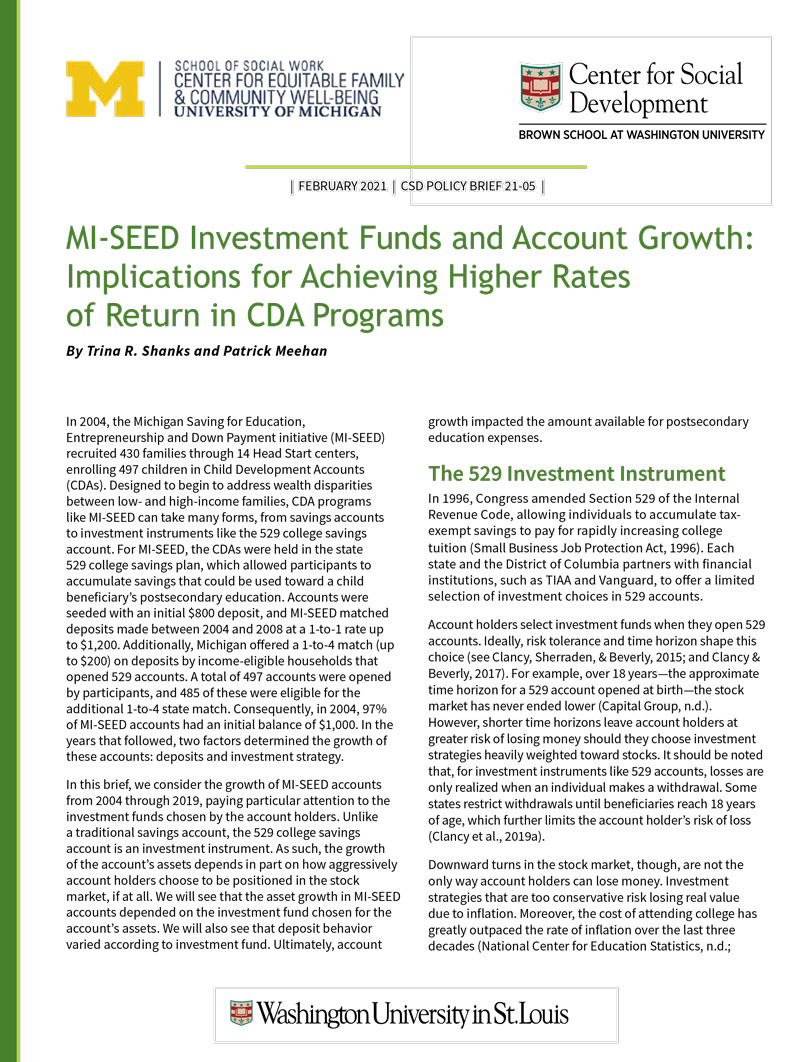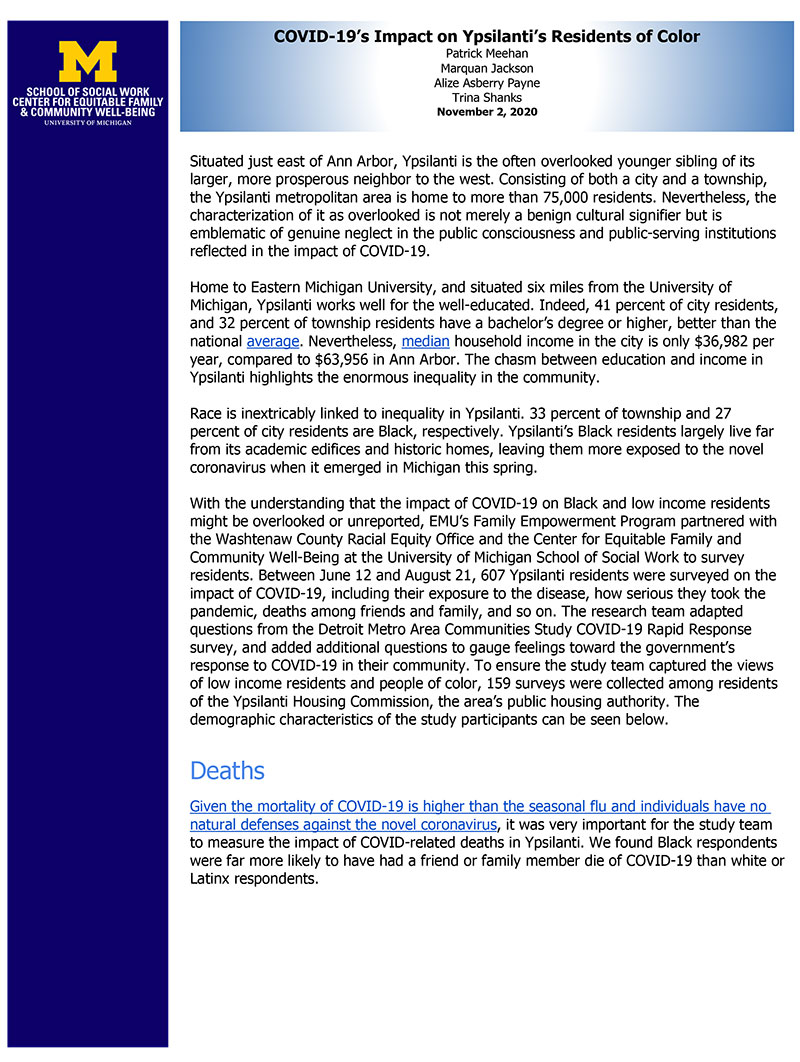White Paper Series
The Double Bind for Entry-Level Nonwhite Mortgage Borrowers: Fragmented Choices, When they Exist
July, 2025
This study investigates the availability, persistence, and equity of small-dollar mortgage lending in the United States, with a focus on nonwhite and entry-level homebuyers across the 20 largest metropolitan statistical areas (MSAs) from 2019 to 2023. Leveraging comprehensive Home Mortgage Disclosure Act (HMDA) data, we analyze nearly 4.9 million home purchase mortgages originated by 2,447 lenders in 25,255 census tracts. Small-dollar loans (<$150,000) are uncommon-comprising less than 2% of all originations, with even fewer reaching nonwhite borrowers. Our findings reveal that small-dollar mortgages are becoming even more uncommon, that there are growing cash barriers to closing these mortgages, and that the national market for these loans is characterized by extreme fragmentation and exclusion. Concurrent with the decline in their availability is lender abandonment of the entry-level, nonwhite borrower segment. This has transformed much of the largest MSAs in the U.S. into "lending deserts" with no meaningful lender presence. Only three census tracts in the entire Atlanta MSA saw any lender originate more than 10 small-dollar loans to nonwhite borrowers in 2023; none did so in Philadelphia. This "double bind" of fragmentation and exclusion at the entry-level reinforces racial wealth gaps and restricts access to homeownership. Policy interventions must go beyond aggregate lending volumes to promote stable, sustained lender participation and ensure true equity in affordable mortgage access.
Detroit Dreams Deferred - 2024 Update
November, 2024
Patrick Meehan, David Palmer, Trina Shanks
This report updates our 2021 report, Detroit Dreams Deferred: Thousands Mortgage Ready but Many Miss Out, with an overview of neighborhood mortgage lending in Detroit since 2019. We find mortgage lending has increased, spurred on by Detroit $25k DPA Awards. This report provides information on where DPA awards have been made across Detroit, information on those awards, and which lenders have participated most.
Detroit Expired LIHTC Conversion Project Newberry Qualitative Report
October, 2024
David Palmer, Patrick Meehan, Michael Kloc
Residents of the Newberry Homes development have successfully managed homeownership. In this report, we identify themes from 20 interviews with residents on what it took to be a low- to moderate-income homeowner in Detroit.
Detroit's Scattered Site LIHTC Developments and Tenant Ownership
October, 2024
David Palmer, Patrick Meehan
This report profiles residential property sales within a half-mile radius of each of Detroit's 26 scattered site LIHTC developments from 2015-2023. Each of these developments has reached the end of its mandatory 15-year affordability compliance period, and can therefore be converted to tenant ownership. Each profile details the kinds of returns tenant owners could expect from ownership based on the past eight years of property sales within a half-mile. Results indicate median sale prices have increased more than 81% within a half-mile of each of Detroit scattered site LIHTC developments, providing an affordable pathway to wealth-building for low- to moderate-income households.
A Guide for Detroiters: Up to $45k to Buy a Home & Which Lenders Close Those Loans
August 23, 2023
David Palmer, Patrick Meehan, Alex Hill, Aaron Deakins, Roshaun Harris, Michael Kloc
The City of Detroit's down payment assistance (DPA) program makes available up to $25,000 to support Detroiters seeking to purchase a home in the city. This short guide details how Detroit residents can access the city's DPA funds, and details options to "stack" DPA from other sources to yield up to $45,000 to purchase a home. The city has highlighted 13 mortgage lenders as participating in the program. Analyzing Home Mortgage Disclosure Act data, lender performance and volume of originations is discussed so that buyers can be better informed of lender performance before applying for a mortgage. The paper also details information helpful to finding a home when properties with condition challenges, and limited availability in buyer-desired locations, constrain the supply of home options available for purchase.
The Racial Wealth Gap at the Low End of the Mortgage Distribution: Evidence from SmallestDollar Mortgage Lending in Metro Detroit
March, 20233
Does small-dollar lending help to close the racial wealth gap in Metro Detroit? Using data from the Home Mortgage Disclosure Act on the 2,236 smallest-dollar loans made in the Metro Detroit region from 2018 to 2021, we find that lending at the low end of the mortgage distribution perpetuates the racial wealth gap. Specifically, we find Black borrowers are more leveraged, have less purchasing power, and thus experience far less wealth-building potential through homeownership than White borrowers. Moreover, homeownership is more expensive in majority-Black neighborhoods in Metro Detroit than it is in majority-White neighborhoods, leaving borrowers little room to accumulate equity in their homes. Implications for homeownership as a mechanism to close the racial wealth gap are discussed.
Working Together to Make Information Accessible: Principles of University-Community Engagement through the Detroit Housing Counseling and Homeownership Project
January 21, 2022
Patrick Meehan, Trina Shanks, David Palmer, Hector Hernandez, Alex Makohn, Lucine Jarrah, Elizabeth Harris
The Center for Equitable Family and Community Well-Being is committed to community-engaged research. In this paper, we explain what that means in practice through our work on the Detroit Housing Counseling and Homeownership Project. Together with community partners, our project team made important information about the state of mortgage financing and homeownership accessible to stakeholders and residents. The project was successful, in particular, for observing four key principles of community-engaged research: (1) equity in the design and distribution of power in the partnership; (2) leverage partners’ strengths; (3) transparency and regular communication; and (4) focus on sustainability and accessibility.
MI-SEED Investment Funds and Account Growth: Implications for Achieving Higher Rates of Return
February 16, 2021
Patrick Meehan and Trina Shanks
In 2004, the Michigan Saving for Education, Entrepreneurship and Down Payment initiative (MI-SEED) recruited 430 families through 14 Head Start centers, enrolling 497 children in Child Development Accounts (CDAs). Designed to begin to address wealth disparities between low- and high-income families, the MI-SEED CDA used the state 529 college savings plan as the investment instrument. This brief presents results on MI-SEED savings and withdrawals through 2019. The results suggest that investment strategy greatly influences account growth, and the authors offer recommendations for ensuring acceptable growth in CDAs.
COVID-19’s Impact on Ypsilanti’s Residents of Color
November 2, 2020
Patrick Meehan, Marquan Jackson, Alize Asberry Payne, and Trina Shanks
Through a partnership with Eastern Michigan University’s Family Empowerment Program and the Washtenaw Racial Equity Office, the Center for Equitable Family and Community Well-Being surveyed 607 Ypsilanti residents from June 12 to August 21, 2020, on the impact of COVID-19. In this brief, we discuss the disparate impact the global pandemic has had on Ypsilanti’s residents of color. We find the virus has exacerbated existing inequalities, such as household budgets, and created new ones, such as the ability to work from home.
